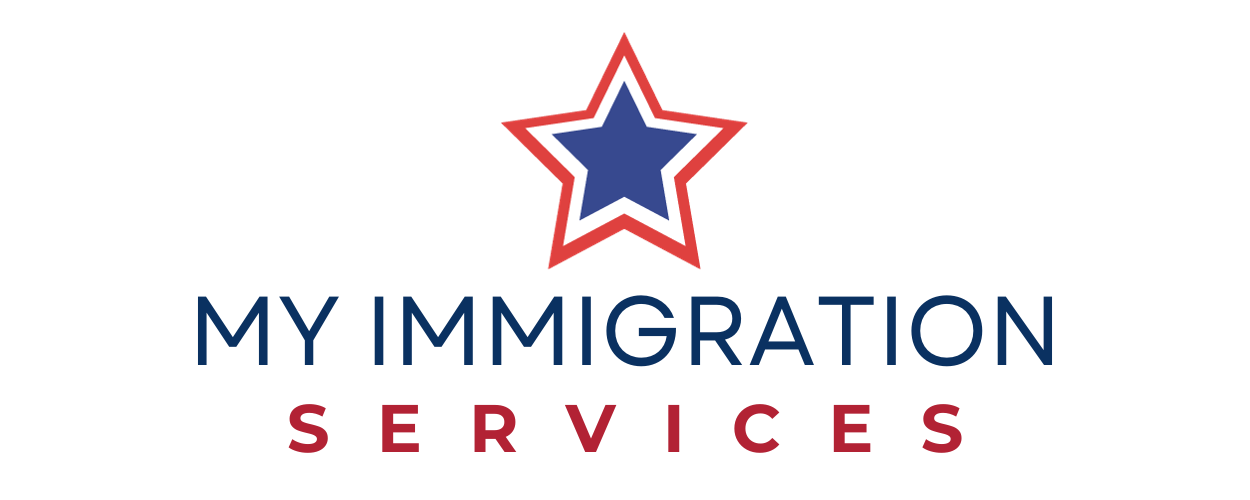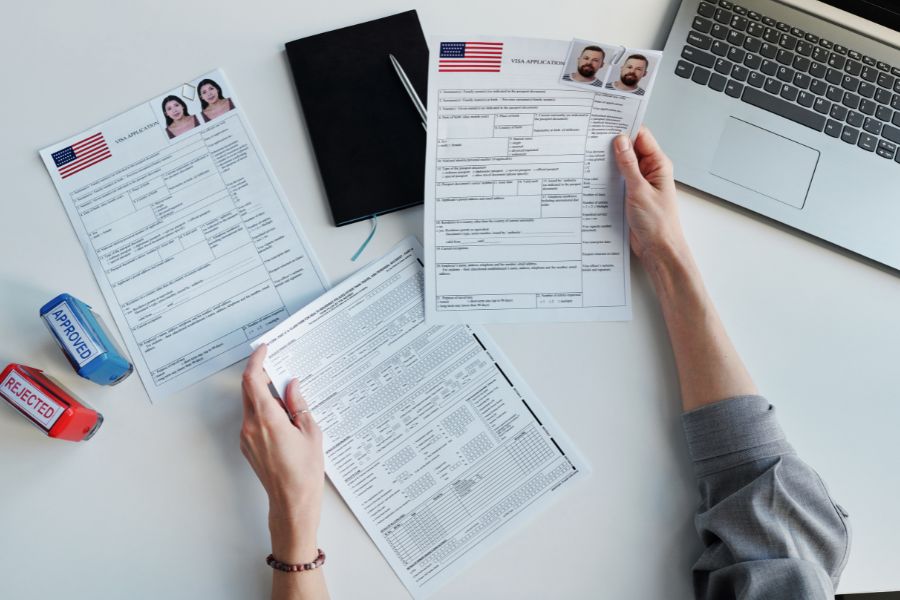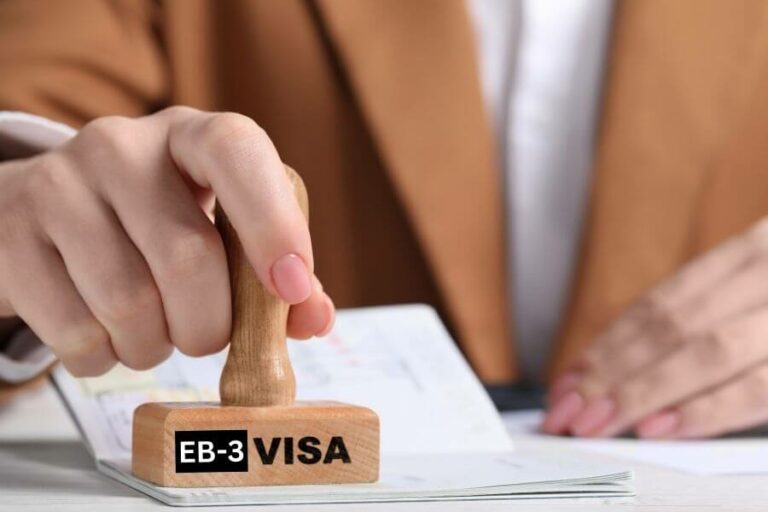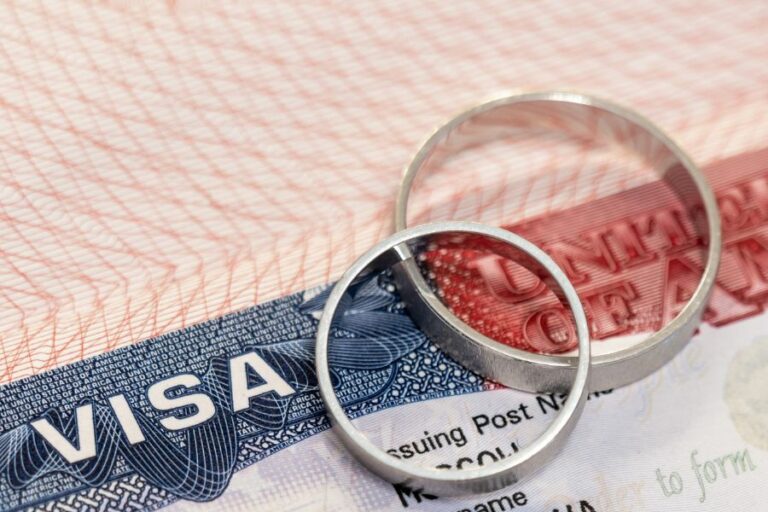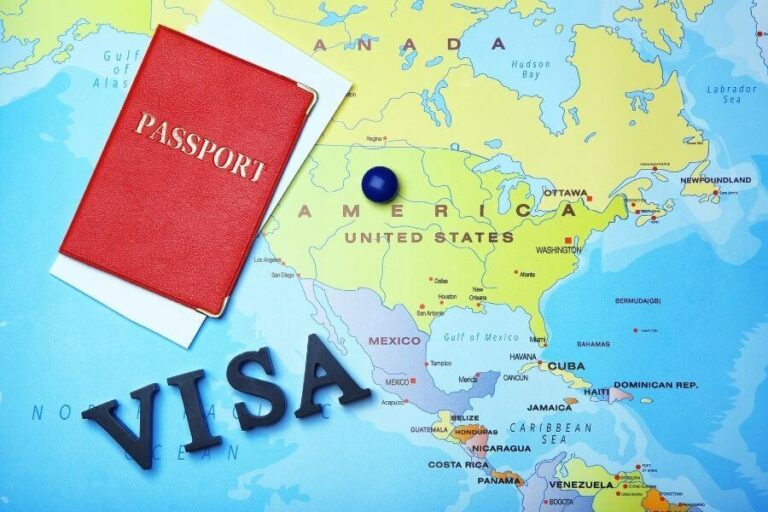EB-2 Visa: Everything You Need To Know
In a world filled with aspirations and dreams, the United States often shines as a beacon of opportunity. For countless individuals worldwide, the desire to live and work in the land of freedom and innovation is more than just a wish; it’s a lifelong ambition. If you find yourself among these dreamers, yearning for the chance to pursue your career in the United States, then the EB-2 visa might just be the key to unlock those coveted opportunities.
In this comprehensive guide, we will take you on a journey through the EB-2 visa process, offering insights, advice, and essential information to help you embark on your own adventure toward a brighter future in the United States. So, fasten your seatbelt and get ready to explore the world of EB-2 visas and the endless possibilities they offer.
What is the EB-2 Visa?
The EB-2 visa (also denoted as ‘EB2’), or Employment-Based Second Preference Visa, is a category of immigrant visa that allows foreign nationals with advanced degrees, exceptional abilities, or work that is deemed to be in the national interest of the United States to live and work in the country permanently. It is one of the employment-based immigrant visa options available for individuals seeking to become lawful permanent residents (green card holders) in the United States.
The EB2 visa is a pathway for highly skilled and accomplished individuals to immigrate to the United States and contribute to the country’s workforce and development. It is a complex immigration process that involves various steps, including labor certification (PERM), filing an immigrant petition (Form I-140), and, eventually, applying for a green card (Form I-485) to become a permanent resident in the U.S.
Types of EB-2 Visas
Advanced Degree Professionals: This category is for individuals who have completed a master’s degree or higher or hold a bachelor’s degree with at least five years of progressive work experience in their field. They must also have a job offer in the U.S.
Exceptional Ability: Individuals with exceptional abilities in fields such as science, arts, or business can qualify for this category. They must provide evidence of their extraordinary talents and accomplishments. A job offer is typically required unless they are eligible for a National Interest Waiver (NIW).
National Interest Waiver (NIW): The NIW category allows individuals to skip the job offer requirement if they can demonstrate that their work benefits the national interest of the United States. This category is typically reserved for those whose work has a substantial positive impact on the nation and allows individuals to bypass the job offer requirement and labor certification process.
EB2 Visa Benefits
The EB2 Visa offers several benefits to individuals who qualify for this employment-based immigrant visa category:
- Permanent Residency: One of the primary benefits of the EB2 Visa is that it leads to lawful permanent residency in the United States, commonly known as a green card. This status allows you to live and work in the U.S. indefinitely and provides a path to U.S. citizenship if desired.
- No Labor Certification (NIW): For individuals who qualify for a National Interest Waiver (NIW), the EB2 Visa eliminates the need for labor certification (PERM). This streamlines the application process and saves time.
- Work Authorization: Once you file the Form I-485 (Application to Register Permanent Residence or Adjust Status), you can apply for employment authorization, which allows you to work legally in the United States while your green card application is pending.
- Freedom to Change Jobs: Unlike some other employment-based visas, the EB2 Visa offers more flexibility when it comes to changing employers or job positions. You can switch jobs as long as the new position is in the same or a similar field.
- Inclusion of Family: Your spouse and unmarried children under 21 years of age can be included in your EB2 Visa application. They can also obtain green cards and enjoy the same benefits as you.
- Access to Education: Green card holders have access to the U.S. education system, including in-state tuition rates at colleges and universities. This can result in substantial savings for educational expenses.
- Healthcare and Social Benefits: Green card holders are eligible for various healthcare programs and social benefits available to U.S. residents. This includes Medicare, Social Security benefits, and Affordable Care Act (ACA) benefits.
- Path to U.S. Citizenship: After holding a green card for a certain number of years (usually five years, but it may vary), you may be eligible to apply for U.S. citizenship, allowing you to participate fully in the democratic process and enjoy all the rights and privileges of U.S. citizens.
- Travel Flexibility: Green card holders can travel in and out of the United States more freely compared to visa holders. While travel restrictions can apply, green card holders generally have more flexibility.
- Security and Stability: Obtaining a green card provides a sense of security and stability in the United States. You can build a life, buy property, and plan for your future with confidence.
- Global Mobility: As a green card holder, you can travel internationally and maintain your status as a U.S. permanent resident, allowing for more flexibility in managing personal and professional affairs abroad.
It’s important to note that while the EB2 Visa offers numerous benefits, the application process can be complex and time-consuming. Seeking guidance from U.S. Citizenship and Immigration Services (USCIS) is advisable to navigate the process successfully and make the most of these benefits.
How to Apply For EB2 Visa
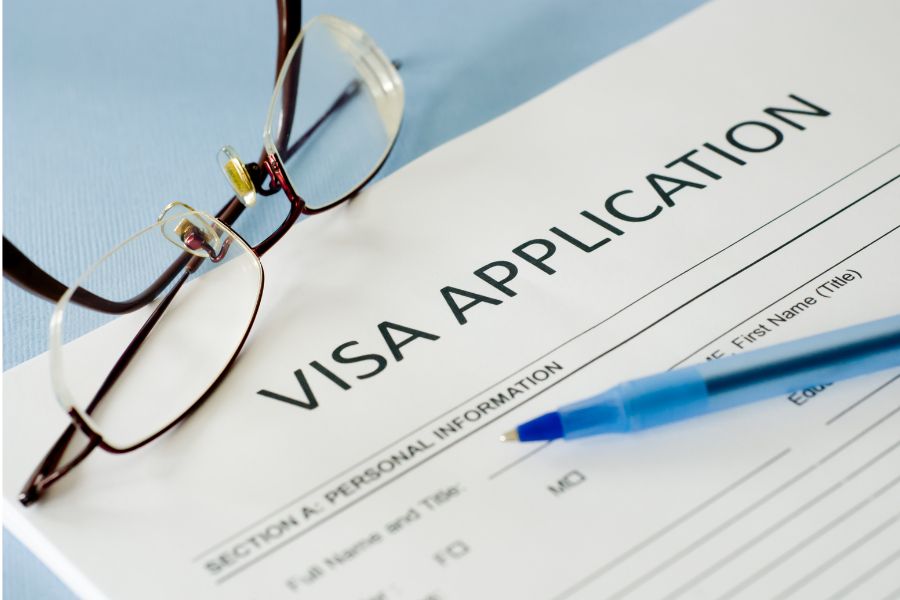
Applying for the EB-2 Visa involves several steps:
1. Determine Eligibility:
Identify which category of the EB-2 Visa you qualify for: Advanced Degree Professional, Exceptional Ability, or National Interest Waiver (NIW).
2. Secure a Job Offer (if required):
If you’re not applying under the NIW category, you need a job offer from a U.S. employer. Your employer will typically initiate the process by filing a Form I-140, Immigrant Petition for Alien Worker, on your behalf.
3. Gather Documentation:
Collect all the necessary documentation, including educational credentials, work experience certificates, letters of recommendation, proof of achievements, and any required licenses or certifications.
4. Labor Certification (PERM):
If applicable (usually for job-based green card applications), your employer may need to obtain a labor certification (PERM) from the U.S. Department of Labor. This step involves proving that there are no qualified U.S. workers available for the job.
5. Priority Date:
Your priority date is established when your Form I-140 is filed. Monitor The Visa Bulletin published by the U.S. Department of State to determine when your priority date becomes current.
6. File Form I-140:
Your employer files Form I-140 with U.S. Citizenship and Immigration Services (USCIS). Ensure that the form is properly completed, and all required supporting documentation is included.
7. National Interest Waiver (NIW) (if applicable):
If you are applying under the NIW category, you’ll need to demonstrate that your work is in the national interest of the United States. Prepare a compelling case to support your NIW petition.
8. USCIS Processing:
USCIS will review your Form I-140 and supporting documents. This process may take several months.
9. Attend an Interview (if required):
USCIS may require you to attend an interview as part of the application process. Be prepared to answer questions about your background and qualifications.
10. Wait for Decision:
USCIS will issue a decision on your Form I-140 petition. If approved, you’ll receive a Notice of Approval.
11. File Form I-485 (if in the U.S.) or Go Through Consular Processing (if outside the U.S.):
Depending on your location, you’ll either file Form I-485, Application to Register Permanent Residence or Adjust Status, if you’re already in the U.S., or go through consular processing at a U.S. embassy or consulate if you’re outside the U.S.
12. Attend Biometrics Appointment (if in the U.S.):
If you’re in the U.S. and adjusting status, you may be scheduled for a biometrics appointment, which involves providing fingerprints and photographs.
13. Attend an Interview (if required):
USCIS may require another interview as part of the adjustment of status or consular processing process.
14. Wait for Decision:
USCIS will review your Form I-485 or consular processing application. Once approved, you will receive your EB2 Visa or green card, granting you permanent residency in the U.S.
How long does it take to get my EB2 Visa?
The processing time for the EB2 Visa can vary significantly depending on several factors, including the specific category you are applying under, your country of chargeability, and the current workload at U.S. Citizenship and Immigration Services (USCIS) and the U.S. Department of State (DOS). Considering these factors, the whole process may take from 12 – 30 months.
Check below the processing time for each form:
- Priority Date (I-140 filing): 11 to 14 months, depending on The Visa Bulletin’s cutoff dates for your country of chargeability and the USCIS unity the process is being analyzed.
- Status Adjustment (I-485 filing): 10 – 30 months depending on the service center your process is being analyzed.
You can check your case processing times by clicking here.
Learn more about other green card processing times.

What is The Visa Bulletin and how does it work?
The Visa Bulletin is a monthly publication issued by the U.S. Department of State (DOS) that provides information on the availability of immigrant visa numbers for different categories of immigrant visas, including family-sponsored and employment-based visas. It’s an essential tool for immigrants and their sponsors to track when they can move forward in the immigration process.
Check how The Visa Bulletin works.
1. Visa Categories and Quotas:
The U.S. government limits the number of immigrant visas issued each year in various visa categories. These categories include family-sponsored, employment-based, and diversity visas, among others.
Each visa category has a numerical quota, meaning only a certain number of visas are available each fiscal year (which runs from October 1 to September 30).
2. Priority Dates:
When you or your sponsor file a visa petition (e.g., Form I-130 for family-sponsored visas or Form I-140 for employment-based visas), it establishes your “priority date.” This date is essentially your place in line for a visa in your specific category and country of chargeability.
Your priority date is crucial because it determines when you can move forward in the immigration process.
3. The Visa Bulletin Publication:
The Visa Bulletin is published around the middle of each month on the DOS website. It contains a chart for each visa category and country or region.
The charts display two columns: “Final Action Dates” and “Dates for Filing.”
4. Final Action Dates:
The “Final Action Dates” chart shows the priority dates that are currently eligible for visa issuance. If your priority date is earlier (i.e., before) than the listed date in your category and country, you are eligible to proceed with your visa application.
For example, if the chart lists a date of “01MAR22,” it means that visa numbers are available for those with priority dates on or before March 1, 2022, in that category and country.
5. Dates for Filing:
The “Dates for Filing” chart lists priority dates that are eligible to file an initial or adjustment of status application but not necessarily eligible for visa issuance.
These dates indicate when you can begin the application process or submit an application for adjustment of status, but you cannot yet receive the visa.
6. Movement of Priority Dates:
Priority dates can move forward or backward in the Visa Bulletin based on visa demand, visa availability, and country-specific limits.
Priority date movement varies by visa category and country. Some categories may advance rapidly, while others may move slowly or not at all.
7. Visa Application:
Once your priority date is current, you can proceed with your visa application or adjustment of status application. You will be contacted by the National Visa Center (NVC) or U.S. Citizenship and Immigration Services (USCIS) to start the next steps in the process.
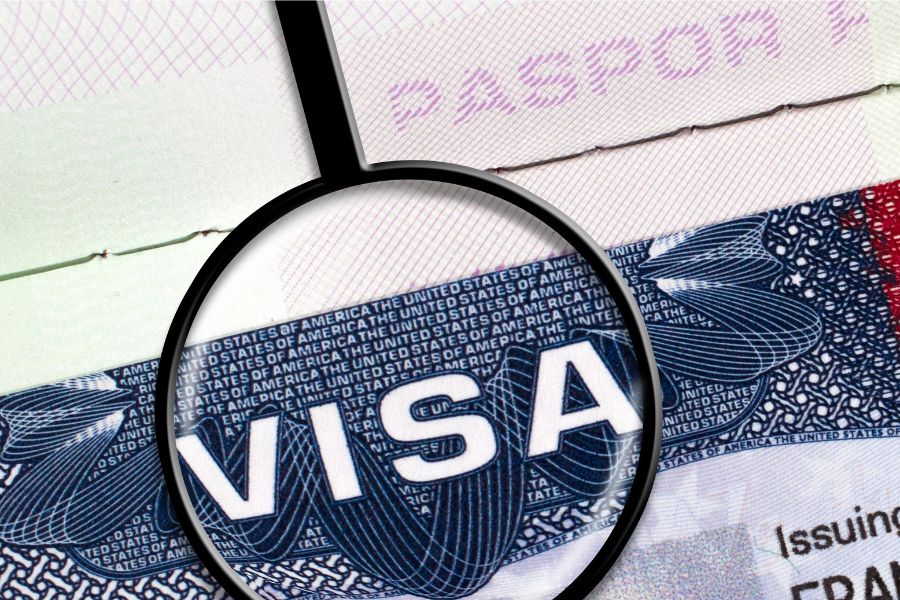
EB-2 Approval Rates
It´s hard to determine an approval rate as there are many factors to be considered, but in general, the rate is between 80% – 93%. According to the USCIS, as of Fiscal Year 2023 (Q1), they received a total of 8,806 petitions, out of which 7,622 have been approved, resulting in an EB2 approval rate of 86.47%
EB-2 Visa Requirements
Advanced Degree or Equivalent:
To qualify for this category, you must meet the following requirements:
- Advanced Degree or Equivalent: You must have an advanced degree, which typically means a master’s degree or higher, or its foreign equivalent. In some cases, a bachelor’s degree plus five years of progressive post-bachelor’s degree experience in your field may be considered equivalent.
- Job Offer: You need a valid job offer from a U.S. employer. The employer will typically file a Form I-140, Immigrant Petition for Alien Worker, on your behalf as a part of the application process.
- Labor Certification (PERM): Your U.S. employer may need to obtain labor certification (PERM) from the U.S. Department of Labor. This process involves proving that there are no qualified U.S. workers available for the job you’ve been offered.
- Priority Date: Your priority date is the day your Form I-140 petition is filed with USCIS. You’ll need to monitor The Visa Bulletin to determine when your priority date becomes current, allowing you to proceed with your green card application.
- Financial Support: You must demonstrate that you won’t become a public charge in the United States. This typically involves your U.S. employer providing evidence that they can financially support you.
- Meet Health and Character Requirements: You must undergo a medical examination and prove that you have good moral character.
- Education and Work Experience Credentials: You’ll need to provide documentation to prove your educational qualifications and work experience. This may include diplomas, transcripts, and letters of recommendation.
- Intent to Work in the Field: You should have the intention to work in the field for which you were offered a job. The EB2 category is specifically for professionals who will work in positions that require their advanced degrees.
Exceptional Ability:
- Exceptional Ability: You must demonstrate exceptional ability in your field, which can be in the sciences, arts, or business. Exceptional ability means a level of expertise significantly above that ordinarily encountered in your field. You can provide evidence of your exceptional ability through achievements, recognition, and contributions to your field.
- Documentation of Exceptional Ability: You’ll need to provide documentation to support your claim of exceptional ability. This can include awards, patents, publications, memberships in professional organizations, and letters of recommendation from experts in your field.
- Job Offer (in Most Cases): While exceptional ability applicants usually need a job offer from a U.S. employer, there is an option to request a National Interest Waiver (NIW) to bypass the job offer requirement. If you qualify for a NIW, you won’t need a specific job offer, but you must demonstrate that your work benefits the national interest of the United States.
- Education and Work Experience: You should have the necessary educational qualifications and work experience to demonstrate your exceptional ability. This typically means holding at least a bachelor’s degree or equivalent experience in your field.
- Priority Date: Similar to the Advanced Degree Professional category, your priority date is crucial. It’s the date when your Form I-140 petition is filed. You’ll need to monitor the visa bulletin to determine when your priority date becomes current to proceed with your green card application.
- Health and Character Requirements: You must undergo a medical examination and provide evidence of good moral character.
- Financial Support: You need to show that you won’t become a public charge in the United States. If you have a job offer, your employer may need to provide evidence of financial support.
- Intent to Work in the Field: Your intention should be to work in the field for which you’re recognized for exceptional ability.
National Interest Waiver (NIW):
The three factors USCIS considers for a national interest waiver are whether:
- The person’s proposed endeavor has both substantial merit and national importance.
- The person is well positioned to advance the proposed endeavor.
- It would be beneficial to the United States to waive the job offer and thus the permanent labor certification requirements.
Besides that, you must meet specific requirements for NIW:
- Advanced Degree or Exceptional Ability: You should have an advanced degree or exceptional ability in your field, just like in the other EB2 categories.
- Evidence of National Interest: You must provide evidence that your work benefits the national interest of the United States. This typically involves showing that your work has a substantial positive impact on the nation, either broadly or in a specific geographic area or industry.
- Documentation of Accomplishments: To support your NIW petition, you’ll need to document your accomplishments and contributions in your field. This may include publications, awards, patents, conference presentations, or letters of recommendation from experts attesting to your contributions.
- Significant Expertise: You should possess significant expertise and achievements that set you apart from others in your field. USCIS evaluates whether you are well-positioned to continue making valuable contributions to the United States.
- Beneficial Impact on National Interest: You must demonstrate that your work is directly related to the national interest and that it benefits the United States more than it would if the labor certification process were required.
- Work Intent: While a specific job offer is not required for an NIW, you should have the intention to continue working in your field in the United States. Your past work and future plans should align with benefiting the country.
- Priority Date: Similar to other EB2 categories, you’ll need to establish a priority date by filing a Form I-140, Immigrant Petition for Alien Worker. Your priority date determines when you can proceed with your green card application based on the visa bulletin.
- Health and Character Requirements: You must undergo a medical examination and provide evidence of good moral character.
- Financial Support: You need to show that you won’t become a public charge in the United States.
The National Interest Waiver option is particularly attractive for individuals who are highly accomplished in their field and whose work has a clear and significant impact on the United States. Meeting these requirements and presenting a compelling case for your contributions to the national interest are essential for a successful NIW petition.

Documents Required for an EB-2 Visa Application
The specific documents required for an EB2 Visa application can vary based on the category you are applying under (Advanced Degree Professional, Exceptional Ability, or National Interest Waiver), as well as your individual circumstances. However, here is a list of common documents typically required for an EB2 Visa application:
Form I-140, Immigrant Petition for Alien Worker
The Form I-140 is the primary form that your employer (or you, if you are self-petitioning for the NIW category) will file with U.S. Citizenship and Immigration Services (USCIS) to start the EB2 Visa process.
Supporting Documentation for Form I-140
The specific documentation will vary depending on your category:
- Advanced Degree Professional: Include educational records (diplomas, transcripts), work experience letters, and evidence of meeting the job requirements.
- Exceptional Ability: Provide documentation of exceptional ability in your field, such as awards, publications, patents, and recommendation letters.
- National Interest Waiver (NIW): Include evidence of your contributions to the national interest, including publications, research, awards, and recommendation letters.
Labor Certification (PERM)
If applicable (usually for job-based green card applications), include the approved labor certification, which demonstrates that there are no qualified U.S. workers available for the job.
Form I-485, Application to Register Permanent Residence or Adjust Status (if in the U.S.)
If you are already in the United States, you will need to file the I-485 form along with the required supporting documentation to adjust your status to that of a lawful permanent resident.
Photographs
Provide passport-sized photographs that meet USCIS specifications for all family members applying with you.
Copy of Passport
Include copies of the biographical page of your passport and the passports of any family members included in your application.
Birth Certificates
Provide birth certificates for yourself and all family members applying with you.
Marriage Certificate or Divorce Decrees
Include marriage certificates (if applicable) or divorce decrees for all marriages for both you and your spouse.
Affidavit of Support (Form I-864)
If you are sponsored by a family member or have a joint sponsor, include the required affidavit of support form (Form I-864) and financial documentation.
Medical Examination
Undergo a medical examination by an approved USCIS panel physician and include the sealed medical examination results.
Proof of Legal Status (if in the U.S.)
Include copies of any previous visas, Form I-94, and any other relevant immigration documents.
Fees and Payment Documentation
Pay the required filing fees and include documentation of payment with your application.
Additional Documentation
Depending on your specific circumstances and the visa category, USCIS may request additional documentation, so it’s essential to review the specific requirements for your case.
What are the costs for an EB-2 Visa application?
The costs associated with an EB2 Visa application can vary depending on several factors, but here are some of the common costs associated with an EB2 Visa application:
- Form I-140 Filing Fee: $700.
- Form I-485 Filing Fee (if applying within the U.S.):|
- Adult applicants (ages 14-78): $1,140
- Children under 14 filing with at least one parent: $750
- Applicants age 79 and older: $1,120
- Biometrics Fee (if required): $85.
- Form I-765 Filing Fee (optional for employment authorization): $410.
- Form I-131 Filing Fee (optional for travel document): $575.
- Medical Examination Costs: Can vary by location and medical provider.
What are the most common reasons for an EB-2 Visa application to be denied?
- Ineligibility: The applicant does not meet the eligibility criteria for the selected category (Advanced Degree Professional, Exceptional Ability, or National Interest Waiver). This could include insufficient qualifications, education, or work experience.
- Weak Supporting Documentation: Failure to provide strong and convincing documentation of qualifications, achievements, and contributions in the field can result in a denial. This includes educational credentials, work experience, awards, publications, and recommendation letters.
- Issues with the Labor Certification (PERM): For categories that require labor certification, errors, or deficiencies in the PERM process, such as incorrect recruitment efforts, can lead to a denial.
- Lack of National Interest for NIW: In the National Interest Waiver category, failing to sufficiently demonstrate that the applicant’s work benefits the national interest of the United States can result in a denial.
- Errors in the Application: Simple mistakes or omissions in the application forms or supporting documents can lead to a denial. It’s essential to complete all forms accurately and provide complete information.
- Issues with the Priority Date: Filing the Form I-140 petition with an incorrect priority date or under the wrong category can cause complications and potential denials.
- Fraud or Misrepresentation: Any form of fraud or misrepresentation in the application process, including false information, fake documents, or false claims about qualifications, can result in a denial and potentially lead to immigration consequences.
- Criminal Record or Inadmissibility Grounds: Certain criminal convictions or inadmissibility issues can make an applicant ineligible for a visa.
- Failure to Attend Interviews or Biometrics Appointments: Missing scheduled interviews or biometrics appointments can lead to delays or denials.
- Changes in Immigration Policies: Changes in immigration policies, regulations, or visa availability can impact the approval of EB2 Visa applications.
You can search most non-precedent decisions dating back to 2005 in USCIS – Click here.
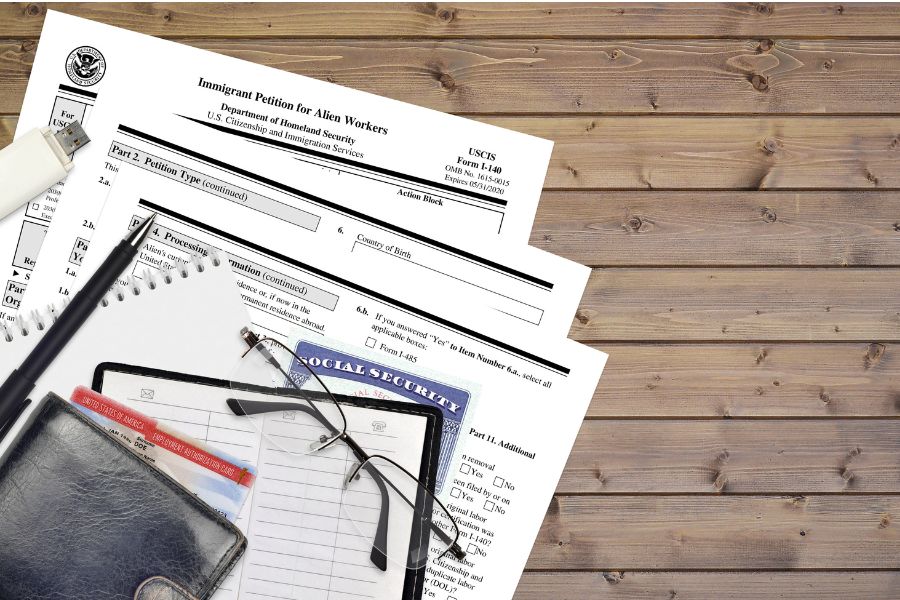
EB-2 Visa FAQs
An EB2 Visa is typically valid for an initial period of up to 5 years, but it can vary based on individual circumstances and visa category. After the initial period, you can renew or extend your EB2 Visa as needed.
The number of EB2 Visas available each year is subject to annual numerical limits, but usually has a maximum of 40,000 slots in a year.
Yes, an EB2 Visa holder can typically change their status to a green card (lawful permanent resident) status in the United States. If you were initially granted an EB2 Visa through employer sponsorship, your employer may file a Form I-140, Immigrant Petition for Alien Worker, on your behalf. This petition is the first step toward obtaining a green card. If you are applying for an EB2 NIW Visa, once your application is approved and all required steps are completed, you will receive your green card, granting you lawful permanent residency in the United States.
Yes, as a lawful permanent resident (green card holder), you may be eligible to apply for U.S. citizenship through the naturalization process after meeting the required residency and other criteria.
In general, it is not advisable to be unemployed while holding an EB2 Visa or any other nonimmigrant visa in the United States, as these visas are typically tied to specific employment or job offers.
A U.S. bachelor’s degree holder can potentially apply for an EB2 Visa, but it would typically require additional qualifications and circumstances. The EB2 Visa is primarily designed for individuals with advanced degrees or exceptional abilities in their fields.
No, you are not considered a U.S. resident with an EB2 Visa. An EB2 Visa, also known as an employment-based second preference immigrant visa, allows you to live and work in the United States on a temporary basis, but it does not grant you lawful permanent residency (LPR) or U.S. citizenship by itself.
An EB2 Visa holder may be considered a U.S. resident when they obtain lawful permanent residency, commonly known as a green card, in the United States.
Yes, it is possible to convert from an F1 student visa to an EB2 Visa, but it typically involves a multi-step process and meeting specific eligibility requirements.
Converting from a J1 Visa to an EB2 Visa can be a complex process, and it may not be a direct conversion in the same way as changing from one nonimmigrant visa status to another.
Leaving your job while on an EB2 Visa can have significant implications for your immigration status and your ability to remain in the United States. It’s essential to understand the consequences and consider some factors as Dependence on Employer, Maintaining Legal Status, Job Portability, Maintaining Legal Status During Transition, and others.
Yes, you can change your employer after your EB2 Visa is approved. However, your new employer will need to file a new Form I-140 on your behalf, and you may need to address any labor certification or priority date issues associated with the change.
Yes, you can apply for an EB2 Visa from your home country. The primary difference between applying for an EB2 Visa from your home country and applying for it from within the United States is the location of the initial processing steps.
You are not obligated to have an immigration lawyer for your EB2 Visa process. While having an immigration attorney can be helpful, especially in complex cases or if you’re unfamiliar with U.S. immigration laws and procedures, it is not a legal requirement. Many individuals successfully navigate the EB2 Visa application process on their own, particularly if their case is straightforward and they are comfortable with the requirements.
In most cases, you will need a U.S. employer to sponsor you for an EB2 Visa. However, the EB2 Visa with National Interest Waiver (NIW) allows certain individuals to self-petition without a job offer if they can demonstrate their work is in the national interest.
Yes, you can include your spouse and unmarried children under the age of 21 as dependents in your EB2 Visa application. They can apply for derivative visas and accompany or follow-to-join you in the United States.
Applying for an EB2 Visa while out of status is generally not advisable, and it can present significant challenges. Maintaining lawful immigration status is a critical requirement when applying for most U.S. visas, including employment-based visas like the EB2 Visa.
If you have a valid nonimmigrant visa, you can generally travel to the U.S. while your EB2 Visa application is pending. However, consider the intent associated with your nonimmigrant visa and any impact on your EB2 application.
It is generally not advisable to apply for an EB2 Visa while in the U.S. on a tourist visa (B-2 visa) because of the potential conflict in intent. Tourist visas are intended for temporary visits, and demonstrating immigrant intent while on a tourist visa can lead to complications.
Yes, you can apply for an EB2 Visa while you are in the United States on another nonimmigrant visa, such as an H-1B visa. However, you will still need to meet the specific eligibility criteria and go through the appropriate application process.
The EB2 National Interest Waiver (NIW) is not limited to specific professions or fields. It is open to individuals in a wide range of professions as long as they can demonstrate that their work benefits the national interest of the United States. This broad eligibility allows professionals from various sectors to qualify for the NIW, including but not limited to: STEM, Medical and Healthcare, Business and Entrepreneurship, Academia and Education, Arts and Culture, Environmental and Sustainability, Social Sciences and Policy, Non-profit and Humanitarian, Government and Defense, and more.
Yes, it is possible to pursue medical residency training in the United States on an EB2 Visa under certain circumstances. The EB2 Visa category has two subcategories that are relevant to medical professionals: Advanced Degree Professional (with Labor Certification) & National Interest Waiver (NIW).
What are the other employment based work visas?
There are several other employment-based work visas and categories available in the United States. These visas are designed to accommodate different types of skilled workers, professionals, investors, and temporary workers. Here are some of the most common employment-based work visas:
- H-1B Visa: The H-1B Visa is for highly skilled workers in specialty occupations, such as technology, engineering, healthcare, and academia. It requires employer sponsorship and is typically valid for up to six years.
- L-1 Visa: The L-1 Visa is for intracompany transferees who work for a multinational company and are being transferred to a U.S. office. There are two subcategories: L-1A for managers and executives and L-1B for employees with specialized knowledge.
- O-1 Visa: The O-1 Visa is for individuals with extraordinary ability or achievement in fields such as science, arts, education, business, or athletics. It does not require employer sponsorship and can be extended in one-year increments.
- TN Visa: The TN Visa is available for Canadian and Mexican professionals under the United States-Mexico-Canada Agreement (USMCA, formerly NAFTA). It covers various professions and requires employer sponsorship.
- E-1 and E-2 Visas: The E-1 and E-2 Visas are for treaty traders and investors from countries with which the U.S. has trade and investment treaties. E-1 is for traders, while E-2 is for investors who are making a substantial investment in a U.S. enterprise.
- H-2 Visas: The H-2 Visa category includes H-2A visas for temporary agricultural workers and H-2B visas for temporary non-agricultural workers. Employers must demonstrate a need for temporary foreign workers.
- EB-1 Visa: The EB-1 Visa is an employment-based immigrant visa category for individuals with extraordinary ability, outstanding professors and researchers, and multinational managers and executives. It does not require a labor certification.
- EB-3 Visa: The EB-3 Visa is an employment-based immigrant visa category for skilled workers, professionals with bachelor’s degrees, and other workers with less formal education and training. It requires labor certification.
- EB-4 Visa: The EB-4 Visa is for special immigrants, including religious workers, certain broadcasters, and employees of international organizations. It has various subcategories.
- EB-5 Visa: The EB-5 Immigrant Investor Program allows foreign investors to obtain a green card by making a qualifying investment in a new commercial enterprise that creates jobs in the United States.
- H-3 Visa: The H-3 Visa is for individuals coming to the U.S. to receive training in a program that is not primarily designed for employment but rather for career development or training purposes.
References:
